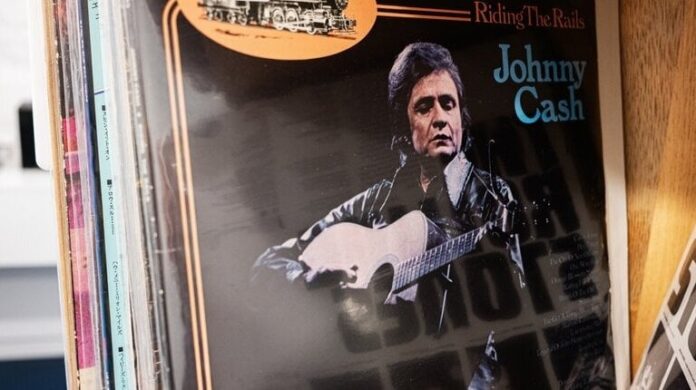The estate of Johnny Cash has sued Coca-Cola, accusing the beverage giant of using an impersonator who mimicked the late singer’s voice in a nationwide advertising campaign without permission.
The complaint, filed in US District Court in Nashville, alleges Coca-Cola hired a tribute singer to record vocals for a college football-themed commercial that started airing in August 2025.
The John R. Cash Revocable Trust, which controls the singer’s publicity rights, is seeking damages and an injunction to stop Coca-Cola from “exploiting the infringing ad.”
The trust alleges in the lawsuit (read here) that Coca-Cola commissioned the Go the Distance commercial as part of its Fan Work Is Thirsty Work campaign for the NCAA football season.
The ad features fans drinking Coca-Cola products at college games and includes imagery from partner schools, including the University of Michigan, the University of Notre Dame, the University of Southern California, Louisiana State University and The Ohio State University.
The trust claims Coca-Cola’s ad agency hired a Johnny Cash tribute performer to ensure the vocal track “sounded as close as possible to the artist’s voice.
The lawsuit said the singer advertises himself as “The No. 1 Johnny Cash Tribute Show” and “The Man in Black — A Tribute to Johnny Cash.”
“The singing voice in the Infringing Ad is readily identifiable and attributable to Johnny Cash.”
The John R. Cash Revocable Trust’s lawsuit
The trust’s lawyers wrote: “On information and belief, the Sound-Alike Singer’s only entertainment talent as a singer is to impersonate Johnny Cash.”
The lawsuit added: “The singing voice in the Infringing Ad is readily identifiable and attributable to Johnny Cash,” and that some consumers “have actually been confused by Infringing Ad.”
Cash, who died in 2003, sold more than 90 million records worldwide and was inducted into the Country Music, Rock and Roll, and Gospel Music halls of fame. His estate has licensed his voice for commercial use, including Super Bowl ads, and operates the Johnny Cash Museum in Nashville.
The lawsuit invokes Tennessee’s ELVIS Act, enacted in March 2024, which protects likeness, voice and image rights. The law defines voice as “a sound in a medium that is readily identifiable and attributable to a particular individual, regardless of whether the sound contains the actual voice or a simulation.”
The statute allows estates of deceased individuals to pursue civil action against unauthorized commercial use.
Coca-Cola, which reported revenue exceeding $47 billion in 2024 and has a market capitalization above $300 billion, has a history of celebrity endorsements, according to the lawsuit.
“Coca-Cola knows that it needs a license to exploit, for commercial advertising purposes, the name, image, likeness, and voice of artists and musicians. Coca-Cola has entered into such licenses in the past.”
The John R. Cash Revocable Trust’s lawsuit
The lawsuit said: “Coca-Cola touts such endorsements on its website as part of its ‘DNA.’ Coca-Cola emphasizes that its first celebrity endorsements were with singers”
The trust’s complaint noted that Coca-Cola has previously entered endorsement deals with artists including Taylor Swift to use their voices in ads.
“Coca-Cola knows that it needs a license to exploit, for commercial advertising purposes, the name, image, likeness, and voice of artists and musicians. Coca-Cola has entered into such licenses in the past.”
The lawsuit added: “Despite capitalizing on the intrinsic value of Johnny Cash’s legendary Voice, CocaCola never even bothered to ask the Trust for a license.”
The lawsuit marks the latest case against a brand over its commercial. In August, Sony Music Entertainment sued US shoe retailer Designer Shoe Warehouse (DSW) over what SME claims to be “rampant infringement” of its sound recordings in social media ads.
Warner Music Group also sued DSW in May, claiming that DSW Designer Shoe Warehouse and parent Designer Brands Inc “misappropriated over two hundred” of WMG’s recordings and compositions in TikTok and Instagram posts.
In October last year, Universal Music Group sued the owner of US Tex-Mex restaurant chain Chili’s in October for allegedly infringing its copyrights in numerous social media posts.
That same month, Sony Music settled a lawsuit against Marriott Hotels over the alleged “rampant” infringement of copyrighted materials in social media posts.
In March, Sony Music sued the University of Southern California, alleging the school repeatedly and willfully used unauthorized copyrighted music in its social media posts.
Other complaints have been filed against companies including a lawsuit against Cookie giant Crumbl (sued by WMG), a lawsuit between the Associated Production Music — jointly owned by Sony Music Publishing and Universal Music Publishing Group — and the American Hockey League; the case between Sony Music and US cosmetics brand OFRA; and the lawsuit filed by Kobalt Music Publishing, Artist Publishing Group and others against 14 NBA teams.
Music Business Worldwide


